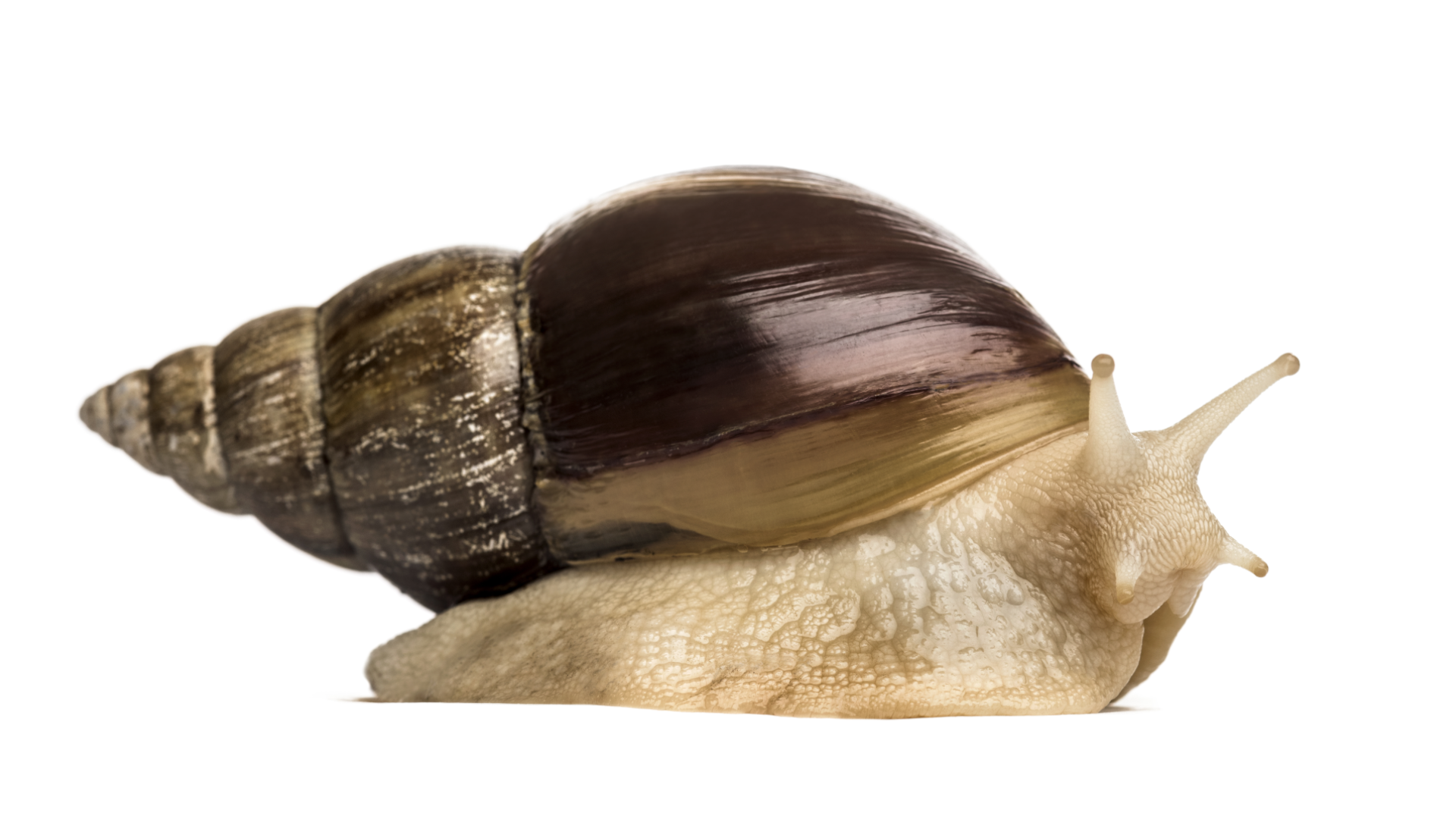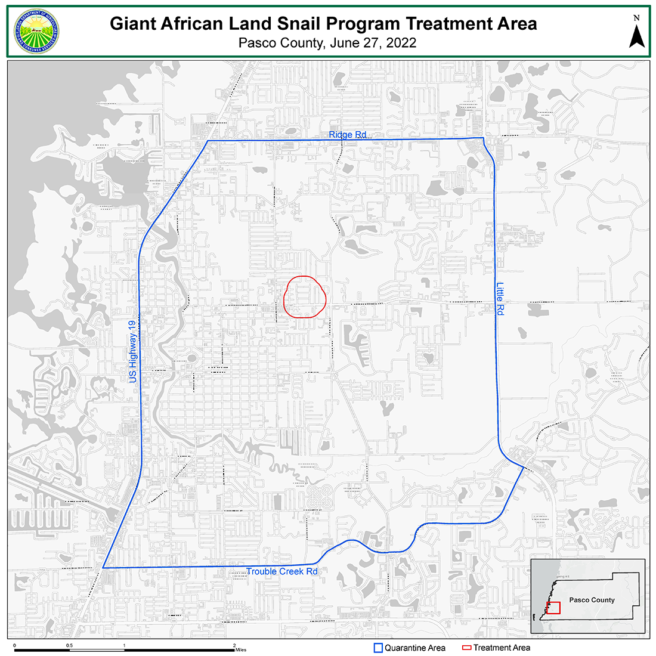
The giant African snail was first found in southern Florida in the 1960s, and it took 10 years and $1 million to eradicate it. It was reintroduced in 2011, and eradication efforts were completed in 2021, but once again, it has returned.
On June 23, 2022, the Florida Department of Agriculture and Consumer Services (FDACS) confirmed the detection of the giant African land snail in the New Port Richey area of Pasco County. This detection was reported by a Pasco County Master Gardener.
This snail can carry rat lungworm. Rat lungworm infections come from microscopic creatures that infect rats. Larvae infect the rats’ lungs and are then passed through their feces to animals that people eat, such as snails and frogs. The parasitic worms travel through the human body to the brain and can cause eosinophilic meningitis and/or damage the central nervous system.
According to the CDC, people also can get infected by eating raw produce such as lettuce that contains a small snail or slug or part of one. People have become infected from drinking rainwater collected from roofs and other untreated sources that are accessible to carrier animals, according to health care officials who have spoken to Food Safety News in recent years. Children and other people who drink from garden hoses have also been infected, according to reports in the U.S. and Europe.
The giant African land snail is also one of the most damaging snails in the world and consumes at least 500 different types of plants. Giant African land snails reproduce quickly, producing about 1,200 eggs in a single year. The giant African snail is currently in Hawaii and parts of the Caribbean, as well as Florida.
Reaching almost 8 inches in length and 5 inches in diameter, the giant African snail is one of the world’s largest land snails, about the size of an average adult fist.
Government response

A quarantine has been placed in Pasco County, starting at the northwest corner of U.S. Highway 19 and Ridge Road, proceeding east on Ridge Road, south on Little Road, west on Trouble Creek Road and north on U.S. Highway 19 (see map).
Treatment to eradicate this pest began on June 29, 2022
What to do if there are gaint African snails in your area:
- Be cautious around these snails. They may carry organisms that can cause diseases in humans. These organisms can be transferred by ingesting improperly cooked snail meat or by handling live snails and allowing their mucus to contact human mucous membranes such as those in the eyes, nose and mouth.
- If you handle snails or slugs, wear gloves and wash your hands. Always remember to thoroughly wash fresh produce. When traveling in areas where the parasite is common, avoid eating uncooked vegetables.
- Cooperate with all quarantine restrictions or rules that might be imposed.
(To sign up for a free subscription to Food Safety News, click here.)
